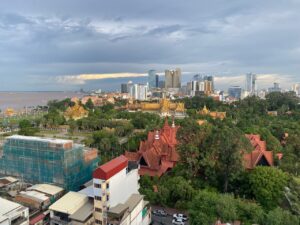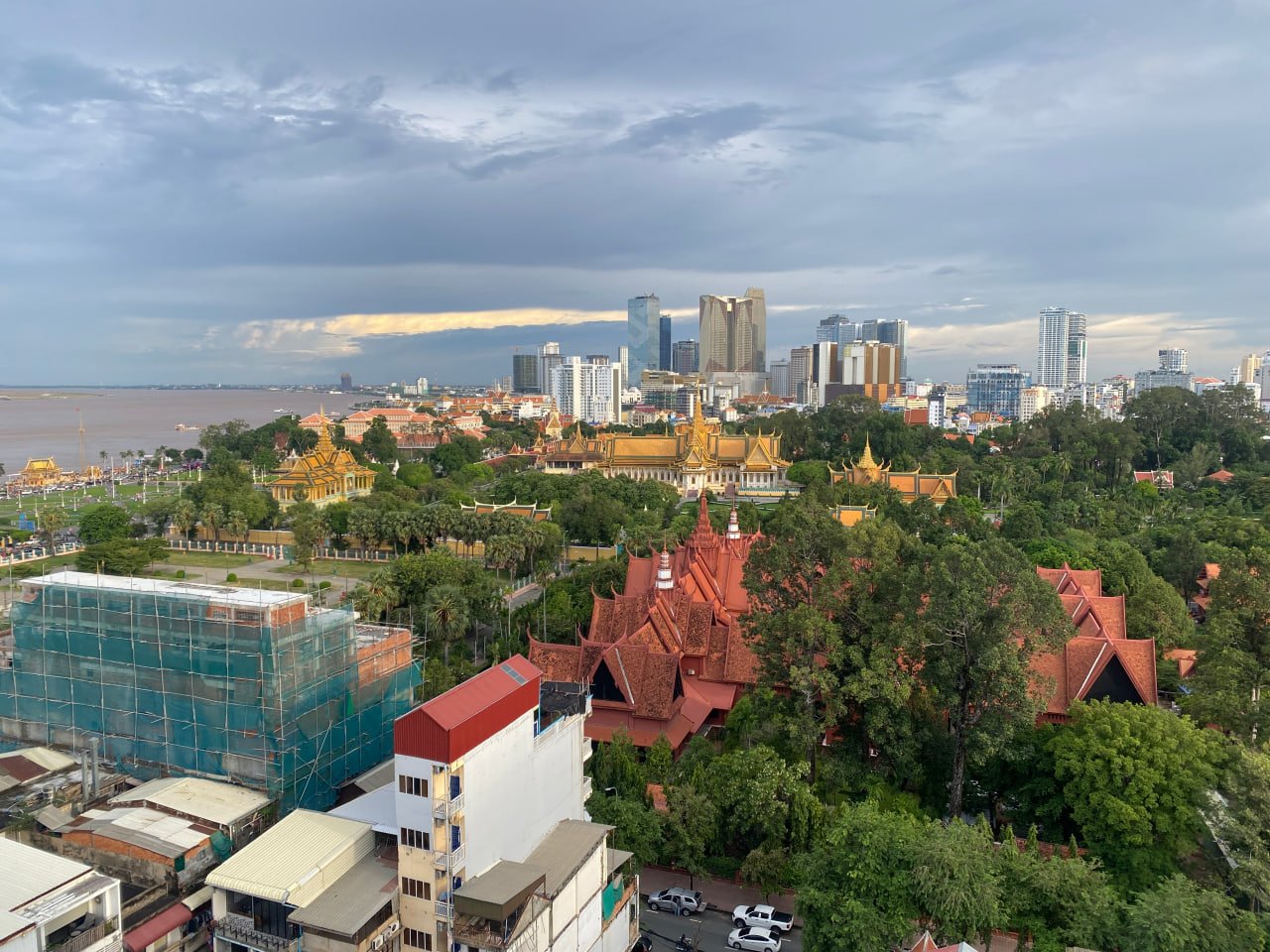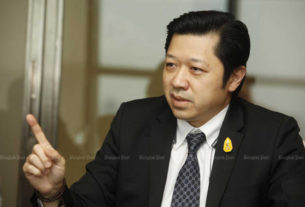
Why Cambodia Needs Energy Efficiency for Economic Growth
Cambodia has experienced dramatic economic growth in recent decades, fueled by energy-intensive industries and rapid urbanization. But experts warn that without energy-efficient practices in factories, businesses and buildings, the country risks unnecessary energy waste.
Cambodia aims to reduce energy consumption by at least 19 percent by 2030 according to its 2022-2030 National Energy Efficiency Policy, as the country sees the advantage of using lower energy for similar or better performance to reap the economic benefits.
Energy experts from different sectors gathered during the Clean Energy Week 2025 on October 3 to discuss Energy Efficiency (EE) significance, implementation issues and further prospects.
According to Mahfuzur Rahman, senior analyst at the Global Green Growth Institute Cambodia (GGGI), energy efficiency in the building sector is crucial due to its high energy consumption and greenhouse gas emissions, the sector accounting for 30 to 35 percent of the energy demand and emissions in Cambodia.
“The need for green and low-carbon building concepts is essential to contribute to the economy and meet national energy efficiency targets,” he said.
Rey Sopheak, national expert at the United Nations Industrial Development Organization (UNIDO), said that energy efficiency is essential for industrial parks to save costs and improve competitiveness, adding that industrial parks need to address both energy and water consumption to ensure sustainability.
“The concept of agro-industrial parks can help integrate different industries and create value from waste,” he said. “Collaboration between different factories in an industrial park can create a stronger voice for energy efficiency improvements.”
The industrial sector’s energy demand in Cambodia has notably increased, going from 8,850 GWh in 2010 to 20,411 GWh in 2019, reflecting heightened industrial activities and energy requirements. The national policy aims for a 20 percent reduction in thermal and electrical energy consumption in the Industrial Sector by 2030, targeting approximately 30,000 GWh, which would represent a saving of nearly 10,000 GWh.
Elaine Jarry, country representative of Geres—an NGO promoting sustainable energy and combating climate change—said that energy efficiency is crucial for garment factories due to climate change and the need for cleaner construction.
“The garment factories need to adopt energy-efficiency measures to stay competitive and relevant,” she said. “The adoption of energy efficiency can help factories reduce costs and ensure smooth transitions.”
Jarry emphasized the importance of energy efficiency to meet national targets and for the country to remain attractive to investors.
Tin Mola, infrastructure lead of the economic development program CAPRED funded by Australia, said that CAPRED has focused on demonstrating the viability of the ESCO [energy service companies] business model in Cambodia to ensure that investment in energy efficiency is supported, which involves an energy-service company providing capital and expertise.
“If you look at the national energy efficiency policy, you see a long list of works or work plans,” Mola said. “The ESCO business model is an alternative, innovative financing model because energy efficiency investment costs money.” The model assists large energy consumers in investing in more efficient equipment, which can help these companies lower energy expenses and boost their competitiveness, he added.

According to people in the field, despite national policies promoting energy efficiency, gaps in regulations, limited data and a shortage of skilled professionals continue to slow Cambodia’s push toward its ambitious energy transition goals.
Elaine Jarry of the NGO Geres said that the organization has worked with the government with the aim of reducing the gap between actual and ambitious energy efficiency targets through realistic solutions and multi-stakeholder approaches. Recent and ongoing projects have included improved cook stoves, charcoal projects, and innovative low-impact living projects.
Vongchanh Kinnaleth, researcher at the Institute of Technology of Cambodia (ITC), said that the institute has been playing a role in supporting the development of a skilled workforce in energy efficiency, focusing on training human resources, particularly in engineering.
“ITC offers training programs for certified energy managers and energy auditors,” she said. “The training programs aim to address the limited professional skills in energy efficiency.”
ITC collaborates with energy consumers and development partners to promote the importance of energy management and certify professionals, she added.
Tin Mola of CAPRED explained that the ESCO (energy service companies) model is challenging but promising due to the clear commercial incentives. However, the lack of data records from factories is a significant challenge in implementing the ESCO model, she said.
“CAPRED is working on developing energy performance contracts and measurement and verification processes [and] ESCOs need access to finance to scale up their operations,” she said, pointing out the bond policies to support energy efficiency in 2026 and calling for effective implementation of existing policies and tweaking them to make them better.
During the discussions, Mahfuzur Rahman of GGGI suggested implementing the energy management program and designating energy consumers, while Rey Sopheak of UNIDO stressed the need for actual numbers and results after policy implementation. Elaine Jarry of Geres added that awareness and basic settings for energy-consumption reduction are important.
Cambodia aims for a significant clean energy transition, targeting 70 percent renewable energy by 2030. The Cambodian government also intends to attract industries such as car-part production and electronics manufacturing, which are expected to raise energy demand to 38,600 GWh annually by 2030 due to their high energy consumption.
Source: https://cambodianess.com/article/why-cambodia-needs-energy-efficiency-for-economic-growth


